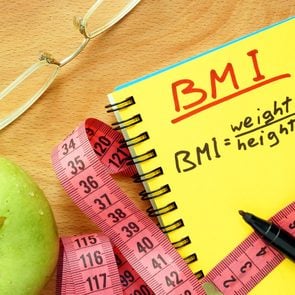This Trendy New Approach to Eating is Being Called the “Anti-Diet”
Intuitive eating is gaining momentum—but is it any healthier than a conventional diet?

What is intuitive eating?
Although most diets vary according to what foods you can eat, they all follow the same principle of restriction: to lose weight, you need to eat less. Never mind that there’s ample evidence that few diets work in the long term, with most dieters gaining the weight back within a year.
The now-trendy diet of intuitive eating is, in a sense, an anti-diet: followers are encouraged to base what they eat on how they feel, not on prescribed limits or calorie counts.
How to eat intuitively
The concept was first proposed in the mid-’90s by registered dietitians Elyse Resch and Evelyn Tribole, who wrote Intuitive Eating. The first step is to reject the idea that you need to be on a diet to be healthy. Intuitive eaters work on getting back in touch with their hunger levels, practising eating when they’re hungry, paying attention to when they’re full and stopping when they’re satisfied.
You’re encouraged to also give yourself “permission” to eat all foods, to reject the idea of “good” and “bad” foods and to accept your inherent body shape. Finally, you help make your body healthier by adding exercise, finding better ways than food to soothe your emotions and slowly shifting to more nutritious food choices.
One of the biggest myths around intuitive eating is that nutrition goes out the window. Curiously, research shows that restricting “bad” foods makes us think about them and desire them more. “Thinking ‘This is a bad food’ makes you feel like you’re a bad person for eating it—and that leads to disordered eating patterns,” says Katie Keller, a registered dietitian in Calgary.
In a traditional diet, caloric restriction is usually followed by a binge, where the body’s primal drive to make sure it gets enough calories overrides any aspirations for nutrition or moderation. Because intuitive eating allows all foods on the table, practitioners can make small, slow changes—that ultimately are more long-lasting—toward eating more nutritionally.
Does intuitive eating help with weight loss?
Short answer: No. There isn’t strong research to back up claims that intuitive eating helps with losing weight or eating more-nutritious food. A 2021 systematic review of intuitive eating published in the Journal of the Academy of Nutrition and Dietetics pointed out that the studies were low-quality or found that there were no differences between people who were intuitive eaters and those who weren’t.
In Keller’s experience, however, intuitive eating can help with overall weight maintenance. In addition, she says, it has advantages for your health: “There is research that shows that it can improve blood-sugar levels and it can repair metabolism,” she says. “So rather than having people do yo-yo weight cycling, it allows them to live at a weight that is easy to maintain.”
A small study from New Zealand looked at 39 adolescents with Type 1 diabetes and found “a strong association between intuitive eating, in particular the effect of emotion on eating, and glycemic control.” Another study, from Brazil, looked at 179 people who were mostly elderly and found that intuitive eaters had an 89 per cent lower chance of inadequate glycemic control.
Should I bother?
Intuitive eaters do gain a healthier attitude toward food, compared to yo-yoing dieters. A study by U.S. researchers followed nearly 1,500 intuitive eaters from 2010 to 2018 and found that they were less likely to be depressed, have low self-esteem or dislike their bodies. They were also less likely to fast, skip meals or binge on food.
We often decide to diet for emotional reasons: because we believe we will be happier if we’re skinnier, for example, or that we will find love or get a better job. “You dig a little bit deeper, and what they actually want is to feel comfortable and confident and healthy in their own body,” Keller says. “People have to be ready to overcome their constant desire to lose weight and manipulate their body, and to realize that changing how they look on the outside isn’t going to change those things on the inside.”
Next, find out what happens to your body when you skip breakfast.






